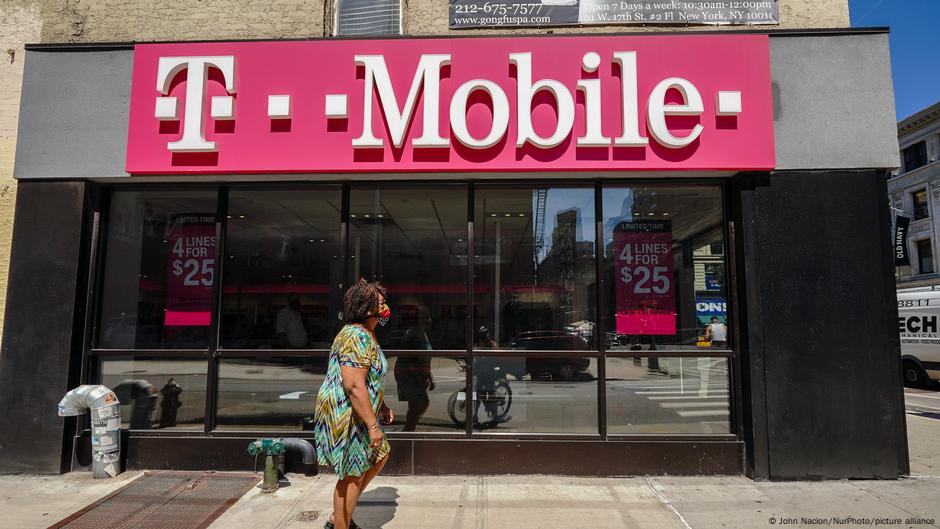T-Mobile To Pay $16 Million For Data Security Failures

Table of Contents
The Details of T-Mobile's Data Security Failures
The T-Mobile data breach exposed the vulnerabilities within their security infrastructure and the severe repercussions of neglecting crucial data protection measures. Understanding the specifics of the breach is critical to preventing similar incidents.
The Nature of the Breach
The breach involved the compromise of sensitive personal information belonging to millions of T-Mobile customers. The exact number of affected individuals varied depending on the specific incident, but reports indicate a substantial number of accounts were impacted. The compromised data included a range of sensitive information, from personal details like names and addresses to more critical data such as Social Security numbers, driver's license information, and financial account details. This extensive data exposure put customers at significant risk of identity theft, financial fraud, and other serious consequences.
Timeline of Events
The timeline of the T-Mobile data breaches highlights the extended period of vulnerability and the delayed response to the incidents. Pinpointing the exact start date for each specific breach is challenging, as these often unfold over time. However, the overall timeline indicates that the breaches occurred over several months, were discovered later, and the settlement was reached after an extended investigation and negotiation process. This underscores the need for proactive and rapid incident response capabilities.
Root Causes of the Breach
Several critical vulnerabilities and weaknesses in T-Mobile's security infrastructure contributed to the breaches. These included:
- Insufficient encryption: A lack of robust encryption meant that sensitive data was not adequately protected during transmission and storage.
- Outdated software: Failing to update software to the latest versions left systems vulnerable to known exploits.
- Lack of multi-factor authentication: The absence of multi-factor authentication weakened account security, making it easier for unauthorized individuals to gain access.
- Inadequate employee training: A lack of sufficient security awareness training among employees contributed to human error and increased the vulnerability of the system.
- Insufficient security monitoring: Inadequate monitoring of the network and systems allowed malicious activity to go undetected for extended periods.
The $16 Million Settlement and its Implications
The $16 million settlement reflects the severity of T-Mobile's data security failures and the regulatory response to the incidents. The consequences extend far beyond the financial penalty.
The Terms of the Settlement
The settlement involved T-Mobile agreeing to specific conditions to resolve the allegations of negligence and data security failures. This likely includes measures for compensating affected customers, implementing enhanced security protocols, and undergoing regular independent security audits to ensure compliance with data protection regulations. The exact terms are usually subject to confidentiality agreements.
Regulatory Response
Regulatory bodies, including the Federal Communications Commission (FCC) and the Federal Trade Commission (FTC), played a significant role in investigating the breaches. These agencies have the power to impose substantial fines and penalties for violations of data security regulations, underscoring the importance of compliance. Their involvement highlights the serious nature of these incidents and the expectation that companies will prioritize data protection.
Impact on T-Mobile's Reputation and Stock Price
The data breaches and subsequent settlement negatively impacted T-Mobile's reputation. Consumer trust is crucial for a telecommunications company. The negative publicity associated with the data breaches likely led to a loss of consumer confidence and potentially affected the company's stock price. This demonstrates the significant financial and reputational risks associated with inadequate data security.
Lessons Learned and Best Practices for Data Security
T-Mobile's experience offers valuable lessons for organizations seeking to bolster their data security posture. Proactive measures are paramount in preventing future breaches.
Strengthening Cybersecurity Infrastructure
Implementing robust security measures is crucial for preventing future data breaches. This includes:
- Robust encryption: Employing strong encryption for both data in transit and at rest.
- Multi-factor authentication: Implementing multi-factor authentication for all user accounts.
- Regular security audits: Conducting regular security audits to identify and address vulnerabilities.
- Employee security training: Providing comprehensive security awareness training to all employees.
- Incident response planning: Developing a comprehensive incident response plan to effectively manage and mitigate security incidents.
The Importance of Data Breach Prevention
Proactive measures are significantly more cost-effective than reacting to a breach. These include:
- Vulnerability assessments: Regularly assessing systems for vulnerabilities and promptly addressing them.
- Penetration testing: Simulating real-world attacks to identify weaknesses in security defenses.
- Continuous monitoring: Continuously monitoring systems for suspicious activity.
Consumer Awareness and Data Protection
Consumers also have a role to play in data protection. This includes:
- Strong passwords: Using strong, unique passwords for all online accounts.
- Multi-factor authentication: Enabling multi-factor authentication wherever possible.
- Software updates: Regularly updating software and operating systems.
- Phishing awareness: Being aware of phishing scams and other social engineering tactics.
Conclusion: Avoiding Future T-Mobile-Scale Data Security Failures
T-Mobile's $16 million data breach settlement serves as a powerful reminder of the devastating consequences of inadequate data security. The significant financial penalty, reputational damage, and impact on customer trust underscore the critical need for robust cybersecurity measures. Businesses of all sizes must prioritize data protection and invest in comprehensive security programs. Learn from T-Mobile's costly data security failures and implement stronger cybersecurity measures for your organization today. Don't let a data breach cripple your business. For more information on improving your data security, explore resources like and [link to another relevant resource].

Featured Posts
-
 La Prevention Des Actes Insenses
May 04, 2025
La Prevention Des Actes Insenses
May 04, 2025 -
 Bradley Cooper And Lea De Seine Matching Green Jackets At Super Bowl Lix
May 04, 2025
Bradley Cooper And Lea De Seine Matching Green Jackets At Super Bowl Lix
May 04, 2025 -
 Ufc Veterans Return Facing Bantamweight Contender On May 3rd
May 04, 2025
Ufc Veterans Return Facing Bantamweight Contender On May 3rd
May 04, 2025 -
 Eddie Hearn Targets Berlanga For Plant Or Charlo Matchup
May 04, 2025
Eddie Hearn Targets Berlanga For Plant Or Charlo Matchup
May 04, 2025 -
 Gold Investment Concerns Assessing The Impact Of Recent Price Falls
May 04, 2025
Gold Investment Concerns Assessing The Impact Of Recent Price Falls
May 04, 2025
